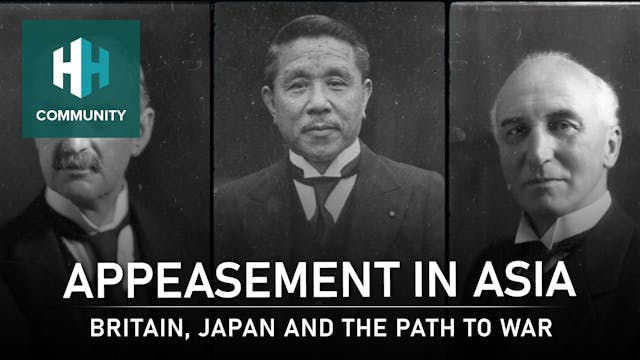In 1919, when a Hitchin shopkeeper and her dog were found bludgeoned to death in her corner shop, it triggered a bizarre sequence of events which resulted in two separate investigations with two quite different outcomes. Historian and criminologist Paul Stickler focuses on how murder investigations were carried out by rural forces just after the first world war and how lessons learned from this case shaped the way that future murder investigations in Britain should be conducted.
Up Next in Season 1
-
The First World War: A Visual Tour Th...
When we think of the First World War so often it is images that come to our minds. Whether these are of trenches, mud, or rows of crosses in fields of poppies they somehow encapsulate the whole collective memory of the conflict. In this talk, Louise Rodwell and James Jefferies will look at the in...
-
Appeasement in Asia: Britain, Japan a...
Throughout the 1930s, British foreign policy in Asia was directed towards reducing tensions with Japan. Seeking to avoid war in Asia, Britain attempted to appease the Japanese through various political, military, and economic acts. Liam Redfern will discuss the little-known attempt by the British...
-
Queens on Screen: Victims, Villains, ...
Join Amy and Johanna as they delve into the world of cinematic queens. Examining how Mary Queen of Scots and Christina of Sweden are portrayed in film, Johanna and Amy will explore how these depictions affect modern popular perceptions of these royal women. Perhaps the most tense early modern rel...



